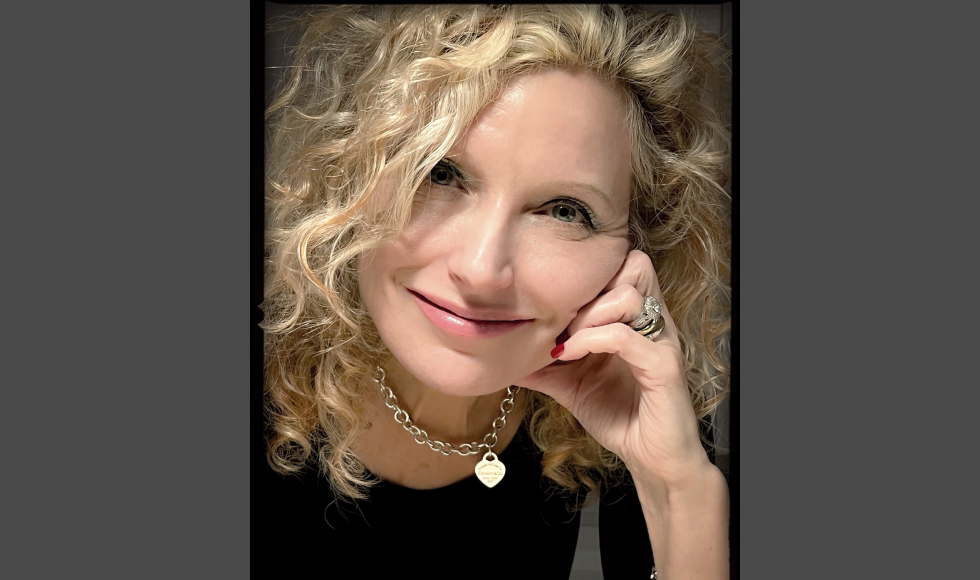Don’t call her Fluffy

Bioethicist and Mac grad Ann Heesters navigated sexism, personal obstacles and a circuitous career path on her route to leadership. Along the way, she has mentored many, many young scholars.
When Ann Heesters applied to the philosophy PhD program at McMaster, eminent legal theorist Wil Waluchow called her himself to say she was accepted and to offer to be her thesis supervisor.
And yet – even with a personal offer of admission, an entrance scholarship, SSHRC funding in hand, and offers from other universities – one young professor at UNB still refused to take her seriously.
“What did you do, Fluffy?” Heesters remembers him asking. “Send a photo?”
While that dismissive comment was “completely deflating,” Heesters knew it wouldn’t stop her. Today, she is a senior director within the University Health Network (UHN), leads the department of Clinical and Organizational Ethics, and an assistant professor at the University of Toronto.
Even before applying to McMaster, Heesters had already travelled a convoluted road: an undergraduate degree in New Brunswick that started in the Faculty of Nursing and shifted to Education, years spent at home taking care of her two children while the job market for teachers was non-existent, and then a return to school to pursue a Bachelor of Arts degree once her kids were in school full-time. (The third child arrived some years later.)
“I’m a first-generation university student on both sides, so in my world you didn’t go to university to study things that didn’t lead directly to a job — but I wanted to do something just for me,” she explains. “Humanities was a revelation — it was a different kind of thinking. It was phenomenal.”
Following an introductory arts survey course the students affectionately called “Plato to NATO,” Heesters took her first philosophy course, which she loved. Her newfound passion for philosophy led to a master’s degree, focusing on legal theory, and then her eventual acceptance at McMaster, on a path to becoming a legal theorist herself.
And legal theory was her world – until, in the middle of her PhD, she was introduced to the field of bioethics by Elisabeth Gedge, a McMaster professor who encouraged Heesters to apply for a bioethics internship with Hamilton Health Sciences.
Later, a divorce meant that Heesters had to withdraw from her PhD program just before starting her dissertation in order to find a job that would support her family – and she used her ethics experience and took a position with a hospital in New Brunswick.
“I had always planned to go back to legal theory, but then I got the first ethics cases for which I felt truly responsible, and that was life-changing,” she says. “I thought, how many years would I have to teach undergraduates about bioethics before I felt I’d made that kind of impact?”
Legal theory and health-care ethics
Heesters went on to create an ethics program for what was then Atlantic Health Sciences in southern New Brunswick, then moved to the Ottawa Hospital to start their ethics service.
Eventually, she landed at University Health Network in Toronto – and decided to finish her PhD, combining her experience in bioethics with her love for legal theory in her dissertation, How Legal Theory Can Save the Life of Healthcare Ethics, which was published as a book in 2022.
The two areas aren’t as disparate as they might seem, Heesters says.
“I realized that throughout my whole ethics career I’d been using the tools I honed in philosophy, and that I was using legal theory to think about ethics problems in health care – I wanted to show people how an ethicist thinks through a hard case,” she explains.
“Ethics operates in the grey areas – if there’s a clear answer there’s no ethical difficulty. That’s true, also, in jurisprudence, where you have to think about the intersection of morality and the law, then decide how you interpret a hard case and what constraints there are on your interpretation.”
At UHN, Heesters directs a team of seven bioethicists, provides consultation to researchers, and is an active public speaker.
She’s also an assistant professor at the University of Toronto’s Dalla Lana School of Public Health in their Joint Centre of Bioethics.
Thinking back to that early dismissive comment, though, she says she’s proudest of her role as a mentor throughout her career, especially in a field where there traditionally hasn’t been representation from women or racialized people.
“There are people who will get in your way and, as women back then, it was hard to be taken seriously,” she says.
“Now, when younger women or men approach me about a career, philosophy or post-philosophy jobs, I tell them not to be afraid to write to the people who can help you. That’s why I take calls all the time.”
And while bioethics is an interdisciplinary field, she says her philosophy background is the foundation of her work.
“Think about the big questions in philosophy: What’s a just society? And can we call ourselves a just society if some don’t have access to health-care resources? And then the question becomes, which resources, and how do we prioritize them?” she says.“Fundamentally, health-care is a humanist project.”

